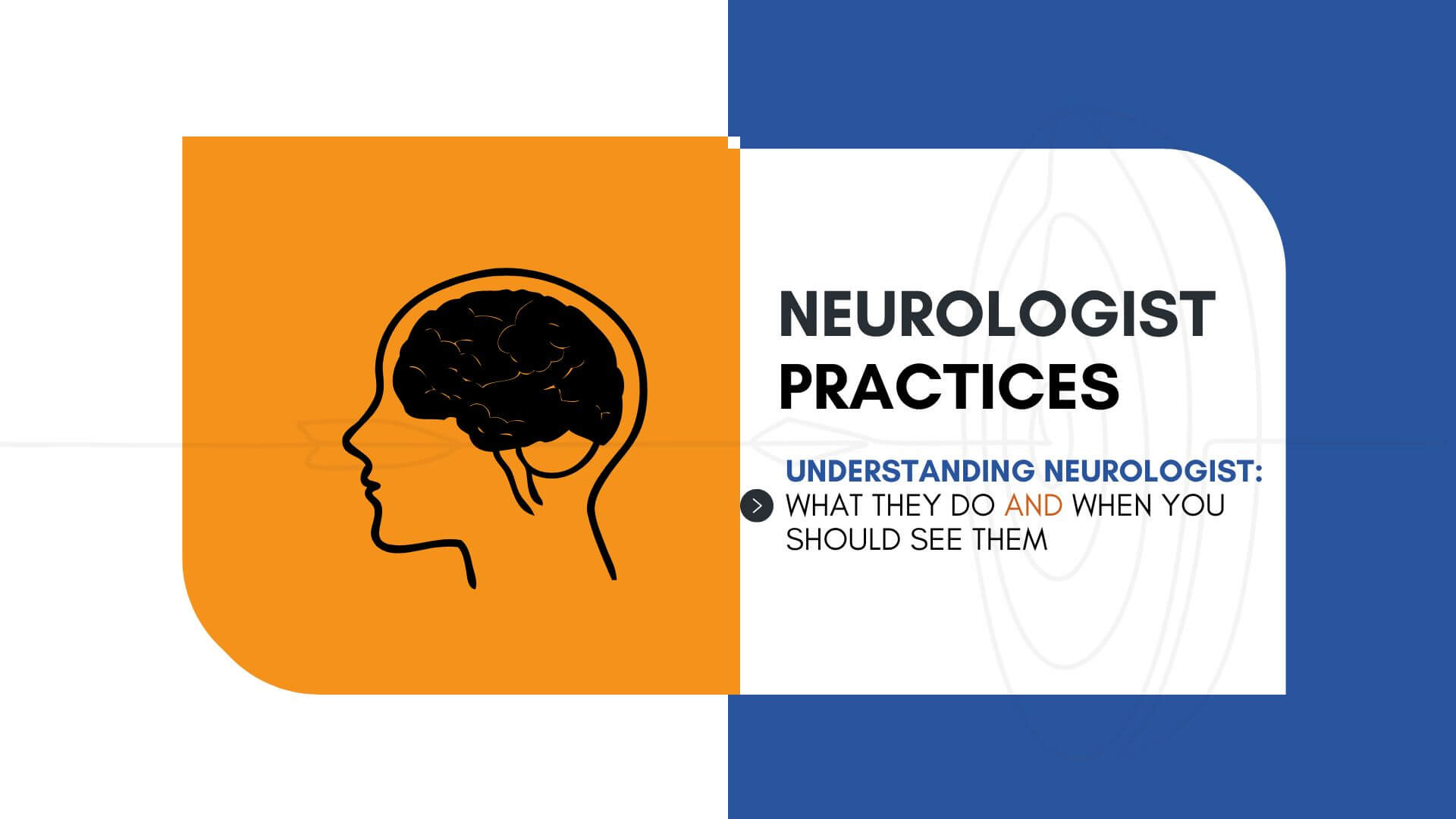Understanding Neurologists: What They Do And When You Should See Them

Understanding Neurologists: What They Do And When You Should See Them
The job of a neurologist is extremely difficult. Almost every case they tackle should be looked into with high sensitivity. They often get so engrossed in their jobs that they rarely find time to promote their offerings. This is where agencies dedicated to healthcare marketing for neurologists enter the equation. Healthcare professionals seek these marketing services to convey the essence of their services and spread awareness about brain health.
If you have been suffering from even a minor issue with your brain, spinal cord, or nerves, make sure you know what a neurologist is, what they do, and when you should see them.
Let’s start with the most basic question.
Who Is A Neurologist?
A neurologist is a healthcare professional who diagnoses and treats diseases and complications related to the brain, spinal cord, and nerves. They are fully well-versed with your brain’s anatomy, functioning, and conditions affecting your nervous system’s health.
Your nervous system is your body’s command center. It is responsible for almost all activities you perform, consciously and subconsciously. Neurologists specialize in understanding this command center and helping their patients restore its functionality in the best way possible.
Difference Between Neurologists And Neurosurgeons
It is common for people to get confused between a neurologist and a neurosurgeon. While both these healthcare professionals specialize in dealing with the same organs, their roles and responsibilities are different.
As mentioned above, a neurologist deals with diagnosing, treating, and managing diseases/disorders related to your brain, spinal cord, or nerves. A neurosurgeon, as the name suggests, is involved with performing surgeries on these organs. They go a step further and possess the surgical knowledge of tackling complications affecting the nervous system.
What Does A Neurologist Treat?
Here is a list of the most important diseases and complications a neurologist can diagnose and treat:
• Dementias, including Alzheimer’s disease
• Cerebral palsy
• Spasticity
• Amyotrophic lateral sclerosis
• Injuries to the brain or spinal cord
• Vascular malformations
• Cerebral aneurysms
• Concussions
• Epilepsy
• Encephalitis
• Facial pain syndromes
• Headaches, including migraine
• Meningitis
• Hydrocephalus
• Multiple sclerosis
• Sleep disorders
• Stroke
• Tremor
• Dystonia
• Brain, spine, and nerve tumors
• Parkinson’s disease
How Does A Neurologist Diagnose Health Complications?
Like most healthcare professionals, a neurologist will ask you about your medical history, specific symptoms, medication history, and other relevant information before conducting a primary physical examination. They also conduct a neurologic examination which includes practices like:
• Balance, coordination, reflexes, and gait
• Mental health
• Muscular strength
• Vision, speech, and hearing abilities
• Sensations
Depending on your symptoms and neurologist examination, a neurologist may also ask for urine, blood, or other fluid tests to understand your condition better. To see if your condition is inherited, they may ask for genetic testing to be done.
When Should You See A Neurologist?
It is important to be mindful of your symptoms and seek early medical help to recover faster. Make sure you do not ignore or sleep over even trivial symptoms that may lead to large-scale implications.
Here are a few important symptoms that should prompt you to see a neurologist:
• Loss of memory or forgetfulness
• Seizures
• Loss of consciousness
• Vision problems
• Smell and taste disturbances
• Tingling sensations and numbness
• Facial asymmetries
• Ringing in the ears, vertigo, and/or loss of hearing
• Hoarse voice
• Difficulty swallowing
• Difficulty in tongue movements
• Muscle cramps, weak muscles, twitching, or spasms
• Shocks in specific body parts
• Pain in the neck or back
• Headache
• Slow movement
• Tremors
Common Tests Ordered By A Neurologist
Let us now have a look at some of the most common tests a neurologist may order when you visit them for diagnosis/treatment:
Angiography
While this test is most commonly associated with cardiologists, neurologists may order it to see if the blood vessels in your brain or spine are blocked or narrowed. The test often helps healthcare professionals detect issues like blood clots, aneurysms, and more.
Cerebrospinal Fluid Analysis
This is a diagnostic test where a sample of the fluid surrounding your brain or spinal cord is removed and tested. It helps neurologists detect complications like infections, brain bleeding, metabolic diseases, and multiple sclerosis.
Biopsy
A biopsy is a diagnostic procedure that involves removing a piece of tissue from your body. Neurologists may ask for tissue from your brain, nerve, or muscle to be examined critically.
Electroencephalography (EEG)
EEG is a test used to measure the electrical activity within your brain. Neurologists often use this test for diagnosing seizures, infections, and serious brain injuries.
Electromyography (EMG)
EMG is commonly used for recording the electrical activity within your muscles and diagnosing muscle and nerve disorders. Doctors also order this test to diagnose spinal nerve root compression and disorders associated with motor neurons.
Evoked Potentials
This is a diagnostic test that measures the speed and efficiency at which electrical signals reach a patient’s brain from their ears, eyes, or the touch of their skin. It allows neurologists to detect complications like acoustic neuroma, multiple sclerosis, and spinal cord injuries.
Polysomnogram
Polysomnogram is ordered by neurologists to measure your body and brain activity while sleeping. It helps them detect and analyze sleep disorders.
Thermography
As the name suggests, thermography is a diagnostic test for measuring the temperature changes within a patient’s body or certain organs. Neurologists use this test to diagnose pain syndromes, nerve root compression, and peripheral nerve disorders.
The Final Word
These were a few major aspects you should consider before visiting a neurologist. Neurologists understand precisely how your nervous system functions and tackle complications that can be life-threatening. Make sure you have all the relevant details about the healthcare professional before you seek medical help from them. It is also important to be well-versed in the basics of neurology before you approach a neurologist.

Blog Admin:
Ravinder Bharti
CEO & Founder - Public Media Solution
About: Ravinder Bharti is the Founder and CEO of Public Media Solution,
a leading
marketing, PR, and branding company based in India.









